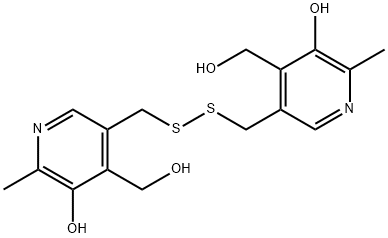A6624512
1,3-Propanedithiol , 98% , 109-80-8
Synonym(s):
1,3-Dimercaptopropane;1,3-Propanedithiol;Trimethylene dimercaptan
CAS NO.:109-80-8
Empirical Formula: C3H8S2
Molecular Weight: 108.23
MDL number: MFCD00004904
EINECS: 203-706-9
| Pack Size | Price | Stock | Quantity |
| 5G | RMB45.60 | In Stock |
|
| 25G | RMB150.40 | In Stock |
|
| 100G | RMB452.80 | In Stock |
|
| 500g | RMB1622.40 | In Stock |
|
| others | Enquire |
Update time: 2022-07-08
PRODUCT Properties
| Melting point: | -79 °C (lit.) |
| Boiling point: | 169 °C (lit.) |
| Density | 1.078 g/mL at 25 °C (lit.) |
| vapor density | >1 (vs air) |
| vapor pressure | 5 mm Hg ( 37.7 °C) |
| refractive index | n |
| FEMA | 3588 | 1,3-PROPANEDITHIOL |
| Flash point: | 138 °F |
| storage temp. | Store below +30°C. |
| pka | 9.86±0.10(Predicted) |
| form | Liquid |
| Specific Gravity | 1.078 |
| color | Clear light yellow |
| Odor | at 0.10 % in propylene glycol. meaty sulfurous |
| Odor Type | meaty |
| biological source | synthetic |
| Water Solubility | <0.1 g/100 mL at 21 ºC |
| JECFA Number | 535 |
| Merck | 14,7801 |
| BRN | 1071197 |
| Stability: | Stable. Incompatible with oxidizing agents, bases, reducing agents, alkali metals. Store cool. |
| LogP | 1.70 |
| CAS DataBase Reference | 109-80-8(CAS DataBase Reference) |
| NIST Chemistry Reference | 1,3-Propanedithiol(109-80-8) |
| EPA Substance Registry System | 1,3-Propanedithiol (109-80-8) |
Description and Uses
1,3-Propanedithiol is used as a reagent in the preparation of thioketals and thioacetals. It acts as a flavoring agent. It is used as a precursor in the synthesis of cyclic dithioacetal (1,3-dithiane) derivatives of carbonyl compounds. It is involved in the preparation of diiron propanedithiolate hexacarbonyl by reacting reaction with triiron dodecacarbonyl. Further, it is used for the protection of aldehydes and ketones through their reversible formation of dithianes. In addition to this, it reacts with metal ions to form chelate rings.
Safety
| Symbol(GHS) |   GHS02,GHS06 |
| Signal word | Danger |
| Hazard statements | H226-H301-H315 |
| Precautionary statements | P210-P233-P240-P241-P301+P310-P303+P361+P353 |
| Hazard Codes | Xi |
| Risk Statements | 36/37/38 |
| Safety Statements | 26-24/25 |
| RIDADR | 3336 |
| WGK Germany | 3 |
| RTECS | TZ2585500 |
| F | 13 |
| TSCA | Yes |
| HazardClass | 6.1 |
| PackingGroup | III |
| HS Code | 29309070 |
| Toxicity | LD50 orally in Rabbit: > 50 - 300 mg/kg |





